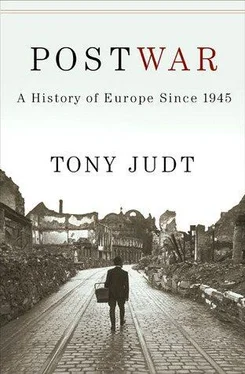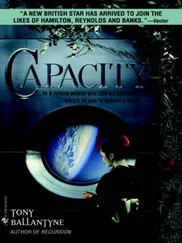Mussolini’s cheerleaders in France and Britain, before 1940, envied what they saw as his success in overcoming Italy’s economic disadvantages through state-led planning and the establishment of umbrella agencies for whole economic sectors. Albert Speer, the administrator of Hitler’s New Order, was much admired abroad for his programme of economic direction and regulation. In September 1943, Speer and Jean Bichelonne, Vichy’s Minister of Industrial Production, worked out a system of tariff reductions based on inter-war ‘plan-ist’ ideas that closely anticipated European trading relations and Franco-German economic coordination in later years. In ‘Jeune Europe’, a club founded in 1933 for young thinkers and politicians keen to set a new direction in policy making, the future Belgian statesman and Europhile Paul-Henri Spaak exchanged ideas about an enhanced role for the state with similarly-minded contemporaries from across the continent, including Otto Abetz, the future Nazi administrator of wartime Paris.
‘Planning’, in short, had a complicated history. Many of its advocates got their first experience, as civil servants and business administrators, in wartime occupation regimes—in France, Italy, Belgium and Czechoslovakia, not to speak of Germany and Italy. Britain was not occupied but there, too, it was the war that introduced and domesticated the hitherto rather abstract notion of governmental ‘planning’. Indeed in Britain it was the war above all that placed the government at the heart of economic life. The Emergency Powers Bill of May 1940 authorised the government to direct anyone to do anything in the national interest, to control any property and assign any industrial plant to any national end it chose. In the words of Kenneth Harris, the biographer of Clement Attlee, Britain’s post-war Labour leader: ‘National planning and national ownership, which in the period 1945-51 seemed the result of a Labour government putting socialist principles into effect, were to a great degree the legacy of a state which had been organized to fight a total war.’
Fascism and war were thus the bridge linking heterodox, marginal and often controversial notions of economic planning with mainstream post-war economic policy. Yet this compromised heritage had little impact on planning’s appeal—whatever its associations with far Right, far Left, occupation or war, planning was quite distinctly not associated with the discredited politics of the inter-war years, a point widely held in its favour. What planning was really about was faith in the state. In many countries this reflected a well-founded awareness, enhanced by the experience of war, that in the absence of any other agency of regulation or distribution, only the state now stood between the individual and destitution. But contemporary enthusiasm for an interventionist state went beyond desperation or self-interest. The vision of Clement Attlee, the British Labour leader whose party defeated Churchill’s Conservatives in the dramatic election upset of 1945, nicely captured the contemporary mood: what was needed now were ‘well-planned, well-built cities and parks and playing fields, homes and schools, factories and shops.’
There was a great faith in the ability (and not just the duty) of government to solve large-scale problems by mobilizing and directing people and resources to collectively useful ends. Obviously this way of seeing things was particularly attractive to socialists; but the idea that a well-planned economy meant a richer, fairer and better-regulated society was taken up by a very broad constituency, including the Christian Democratic parties then rising to prominence all over Western Europe. The English historian A. J. P. Taylor told BBC listeners in November 1945 that ‘[n]obody in Europe believes in the American way of life—that is, private enterprise; or, rather, those who believe in it are a defeated party which seems to have no more future than the Jacobites in England after 1688’. Taylor exaggerated as always, he was wrong in the long run (but who isn’t?) and he might have been surprised to learn about the planist enthusiasms of many New Dealers prominent in the contemporary US administration of Germany. But at the time he was broadly correct.
What was ‘Planning’? The term is misleading. What all planners had in common was belief in an enhanced role for the state in social and economic affairs. Beyond this there was great variation, usually a consequence of distinctive national political traditions. In Britain, where very little actual planning ever took place, the real issue was control —of industries and social and economic services—through state ownership as an end in itself. Thus nationalization—notably of mines, railways, goods transportation and utilities—and the provision of medical services lay at the heart of the Labour Party programme after 1945. The ‘commanding heights’ of the economy, in short, were taken over. But that was all.
In Italy the Fascist institutional legacy—which had brought large tracts of the economy under state oversight—was left largely intact after the war. What changed was the political colour of the parties now benefiting from the industrial and financial power base afforded them by holding companies and state-owned agencies. In West Germany, after 1948, the economy would remain mostly in private hands but with detailed, publicly-approved arrangements for factory management, employer-employee relations and conditions of employment and distribution. In the Netherlands central planning entailed a variable mix of predictive and prescriptive edicts for the use of private enterprise.
Most countries of western Europe had rapidly growing public sectors, when measured by government expenditure or the number of public-sector employees. But only in France did rhetorical enthusiasm for state planning translate into the real thing. Like the British, post-war French governments nationalized: air transportation, banks, thirty two insurance companies, utilities, mines, munitions industries, aircraft manufacturing and the giant Renault concern (as punishment for its owner’s contribution to the German war effort). One fifth of France’s total industrial capacity was in state ownership by May 1946.
Meanwhile, on December 4th 1945, Jean Monnet presented President De Gaulle with his Plan de Modernisation et d’Équipement . A month later the Commissariat Général du Plan was established, with Monnet at its head. In the course of the following months Monnet set up Modernization Commissions for various industries (mining, electricity, transportation, building materials, steel and agricultural machinery; oil, chemicals, fertilizers, shipping and synthetic fibres would later be added) and these in turn delivered proposals and sectoral plans. Exactly one year after its creation, in January 1947, the Commissariat saw its first national Plan approved by the French Cabinet—without discussion.
The Monnet Plan was unique. It was the work of an unusual man. [18] Jean Monnet was born in Cognac in 1888, the son of a brandy merchant. Upon leaving school he spent many years living and working abroad, notably in London; after the First World War he was named Secretary General of the new League of Nations. He passed much of the Second World War in the US, negotiating arms supplies on behalf of the British government and the Free French. His devotion to economic planning and his later contribution to the Schuman Plan for European economic cooperation thus drew upon a familiarity with large-scale organization and inter-state collaboration that was strikingly unusual for a Frenchman of his class and time.
But above all it was the product of a political culture already favourably disposed to authoritarian decision-making and consensus building by governmental fiat . Under its auspices France became the first western country to commit itself wholeheartedly to economic growth and modernization as public policy. The Plan depended heavily on assumptions about French access to German raw materials and markets, and thus the story of its success is part of the narrative of France’s relations with Germany and the rest of Europe in the post-war decade: a story of many false starts, constraints and frustrations.
Читать дальше












